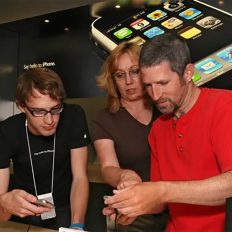Apple has been criticized in the past few weeks as it is only bringing Apple Intelligence features to the iPhone 15 Pro models while skipping all older models. On the flip side, all iPads and Macs with Apple Silicon will get the features, and there is a perfectly good reason why the older iPhone models had to be skipped. Apple executives have now given an in-depth reason why users would have to jump on board newer iPhone models to get iOS 18's flagship AI features.
Apple's explanation is quite plausible as to why older iPhone models and Vision Pro do not get Apple Intelligence features with iOS 18
Apple has made it mandatory for users to own an iPhone 15 Pro or Pro Max to use the Apple Intelligence features. While the company could have offered the features, the experience would have been very poor as users would have had to wait for the responses a lot. Besides this, the Neural Engine is important for Apple in deciding whether a device should get Apple Intelligence features in iOS 18 or other updates.
Users have also raised a question of why Apple did not provide cloud-based AI utilities, similar to how Siri works today if the devices are incapable of running on-device generative AI models. John Gruber from the Daring Fireball spoke with Apple regarding the same matter and the company has now cleared the air.
Apple states that Apple Intelligence is not designed to work in a plain and simple manner, as it is made up of large and small models that work together. This means that the AI models that run on-device models are different than the ones that operate through the cloud. One of the on-device models is "heuristic," which decides which tasks should be handled by the device and which should be sent to the cloud, like ChatGPT.
Other than this, allowing all or older iPhone models to access cloud-based Apple Intelligence features would skyrocket the demand for servers, which would incur a hefty cost for Apple and, ultimately, the end user. The company also explained the importance of Neural Engine capacity and how it determines Apple Intelligence support. For instance, the recently announced Vision Pro headset comes with an M2 chip, but the company ditched Apple Intelligence features despite the fact that the chip is perfectly capable of handling AI tasks with ease.

The argument is that the M2 chip's Neural Engine is already handling a plethora of tasks ranging from real-time processing to object detection and supplementing the R1 chip. This means that the Neural Engine has no capacity to run Apple Intelligence features. The same logic applies to older iPhone models with slower Neural Engine performance. The iPhone 15 Pro's A17 Pro chip is the only device with spare Neural Engine capacity to handle Apple Intelligence features.
Possibly, Apple will upgrade the Vision Pro with an M4 chip to handle Apple Intelligence features. This explanation is pretty plausible and makes sense for a lot of reasons. Users would want the best experience from Apple Intelligence, and the company is not known to deliver a sub-par experience.




